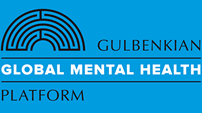mhGap Programme expands to include scalable psychological interventions

The value of psychological interventions is increasingly recognized. Although the mhGAP Programme has always recommended psychological interventions, WHO is now extending the Programme by giving more attention to and guidance for scalable psychological interventions. Indeed in 2015, WHO released the Thinking Healthy* manual, a simple cognitive-behavioural treatment manual for perinatal depression.
The scope of WHO’s work on psychological interventions is now extended through this week’s release of the individual, adult, 5-session version of Problem Management Plus (PM+)*, an intervention for common mental disorders among adults in communities affected by adversity. PM+ combines the empirically supported techniques of problem-solving counselling, behavioural activation, stress management and strengthening social support. The value of PM+ has recently been confirmed through randomized trials in Nairobi and Peshawar.
WHO is developing and testing a range of other scalable psychological interventions - involving a range of modalities - including for parents of children with developmental disorders; carers of people with dementia; and young adolescents affected by adversity. All interventions are designed and adapted to be scalable and subject to rigorous testing by WHO and partners in countries across different parts of world such as China, Ethiopia, India, Italy, Kenya, Lebanon, Nepal, Pakistan, South Korea and Uganda. Testing will be followed by guidance on implementation.
Once ready, these interventions will be uploaded to the WHO website, thereby greatly enhancing potential access to partners in low- and middle-income countries. Extending the mhGAP Programme with these interventions increases the Programme’s reach and should help facilitate a more effective and balanced bio-psychosocial approach.
WHO’s work on PM+ has been funded by USAID OFDA, ELHRA’s Research for Health in Humanitarian Crises (R2HC), Grand Challenges Canada, World Vision, and UNHCR.
